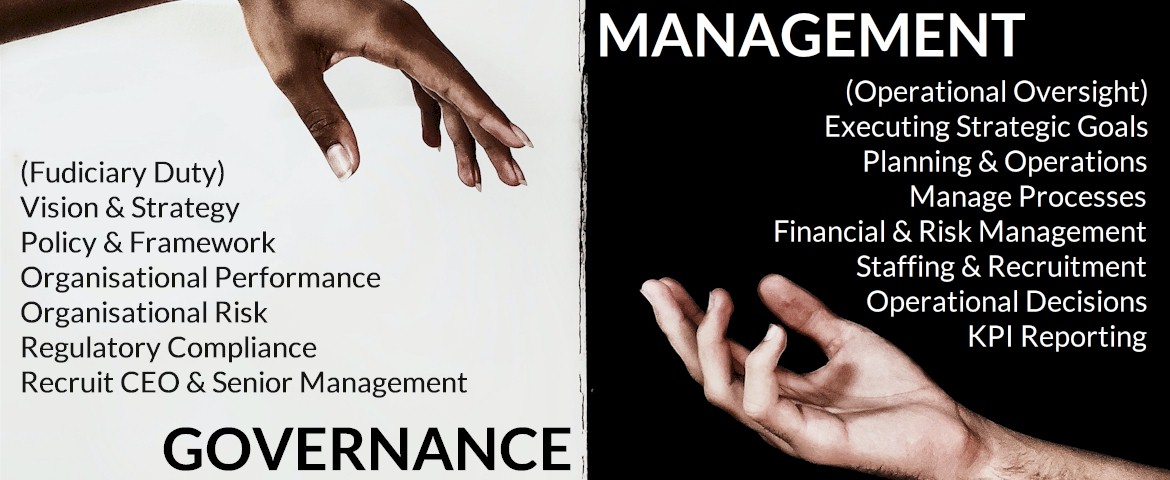Governance and management
The terms governance and management are common in business. So what is the difference between governance and management? Why does it matter?
The role of governance
Every business has a governing body. This is either the business owners, or a group of people who are accountable for organisations overall performance. For larger companies, this is typically the board of directors. The governance role provides overall vision, direction, and strategy. Therefore it establishes the framework or methods of working, and what areas to focus on.
Governance is also accountable for compliance. Every business operates in an environment where relevant laws and regulations apply. There are also increasing demands for corporate social responsibility. This sets expectations to businesses to operate ethically and sustainably.
The role of management
On the other hand, Management concerns focus on the day to day operations of the business. It is therefore responsible for organising and doing the work. Senior Managers make decisions in line with the organisation’s goals, set by governance. In other words, Management is more involved with the details. Things like staff hiring, resourcing, budget oversight, processes, and operational management.
When governance and management collide
In smaller organisations there is a risk of overlap between the governing board and management functions. Boards in these organisations often involve themselves in the business of management. It is healthy for boards to ask questions and seek information from management. However, it is unhealthy for them to micro-manage by getting involved in operational activities. For example, a board member questioning an operational decision around a recent hire. This can occur if the board loses faith in the management team, or due to role familiarity. Role familiarity is common, since most board members come from management backgrounds.
The focus of governance
In commercial organisations the governance role comes down to fiduciary duty. That is, their responsibility is to govern on-behalf-of the owners (usually shareholders). In other words, they look after the owners interests by seeking to improve organisational performance, while mitigating risks. So, a boards focus is approving policies, developing strategy, oversight of risk, and improving performance. They also choose the senior management team and CEO. Lastly, the Board's role is to act in a way that supports the organisations goals. How a director behaves can support or damage a company reputation.
The focus of management
Management on the other hand is responsible for executing the boards strategy. They develop operational plans in line with approved policy. While they too must act in a way that supports organisational goals, they are closer to the action. They must manage and respond to operational demands daily. Lastly, Management must support both functions by ensuring the right information is available. This is key to managing operations, as well as monitoring progress on strategic goals, and regulatory compliance.
Final thoughts
Understanding the difference between governance and management is important as the two roles differ. Each has a distinctly different focus, but they must work in partnership. The first provides strategy, direction, and the frameworks for the second to work in. Management needs to know what to concentrate on within these frameworks. To such an end, suitable key performance indications (KPIs) need reporting to both senior leadership and governing board levels. This enables both groups to monitor and understand the overall health of the organisation.
[Want to learn the difference between leadership and management? See our article here.]
Recommended reading:
Corporate Governance - Bob Tricker
 How to become a good role model
Prev post
How to become a good role model
Prev post


